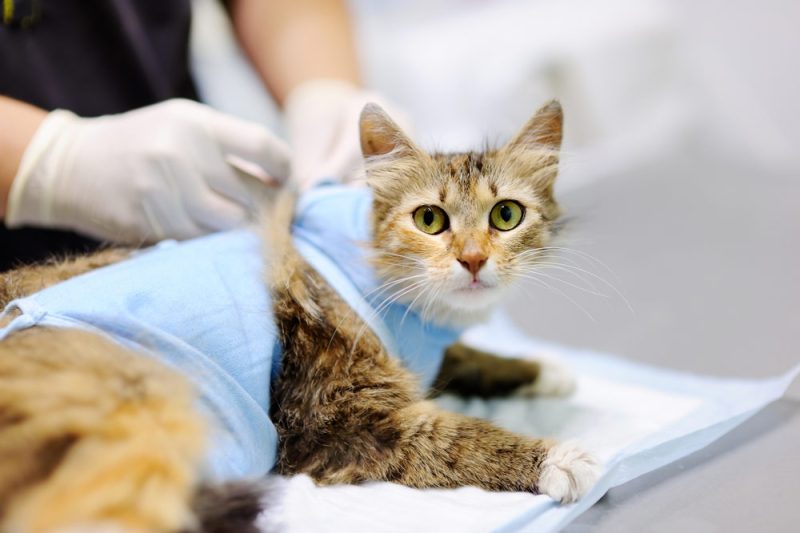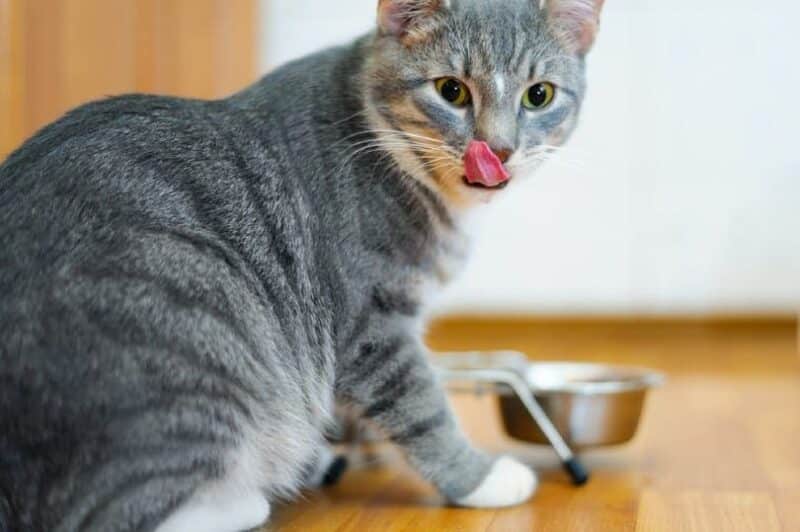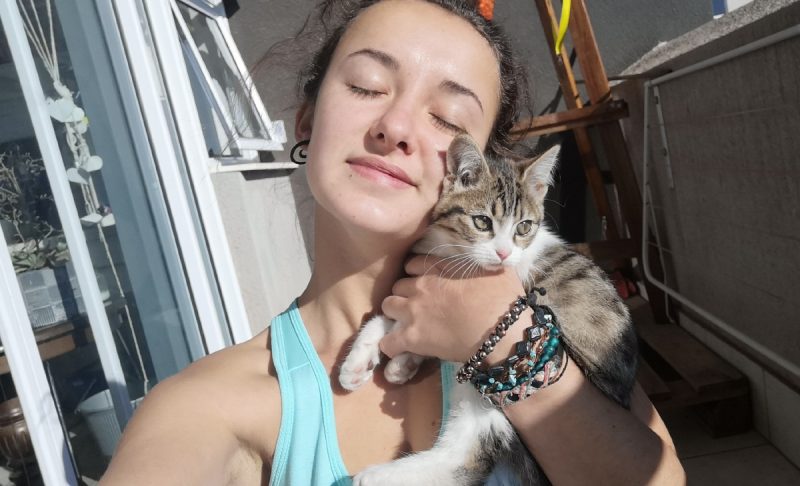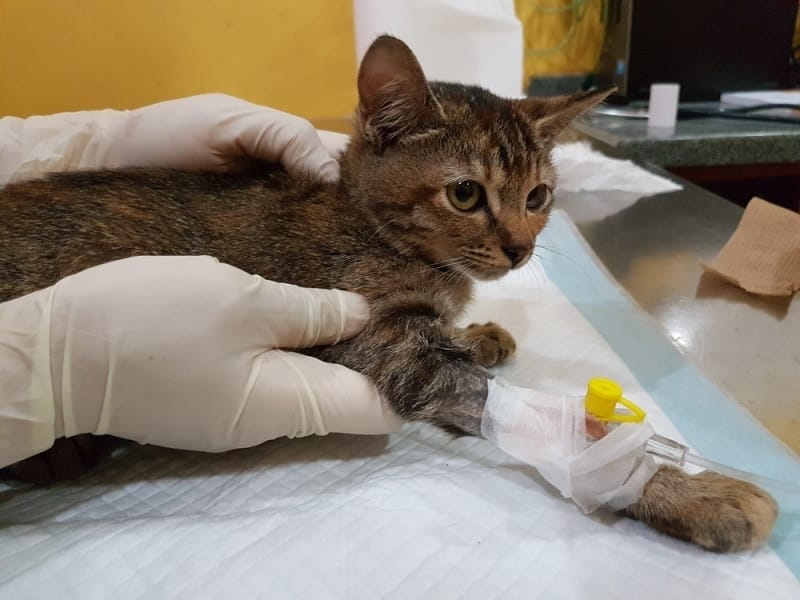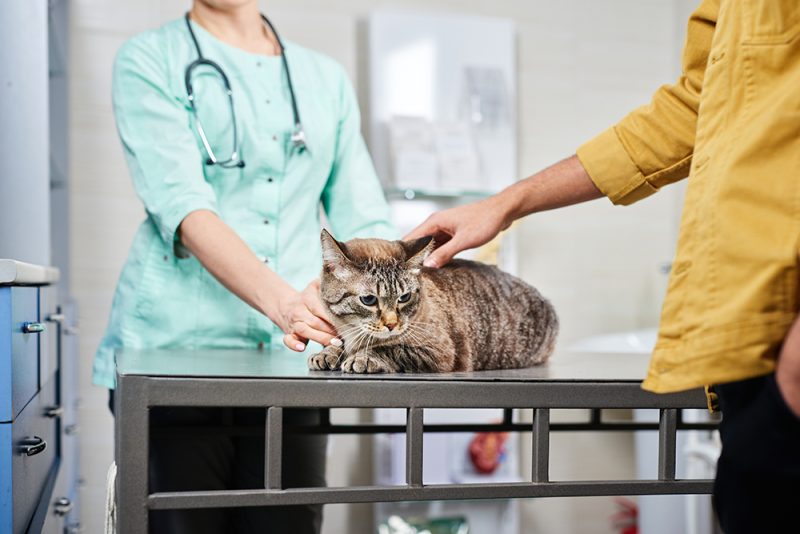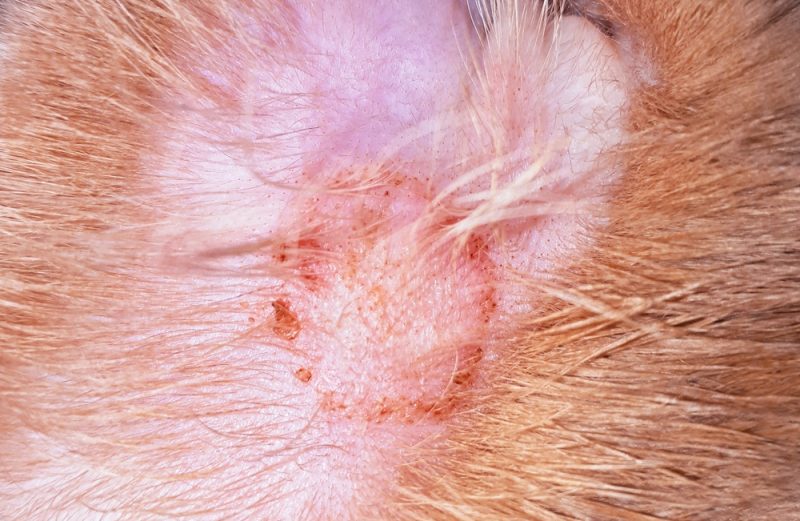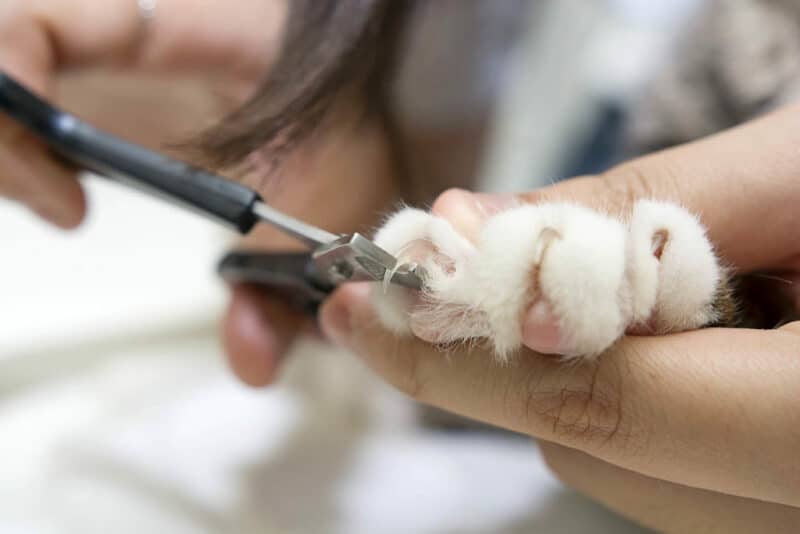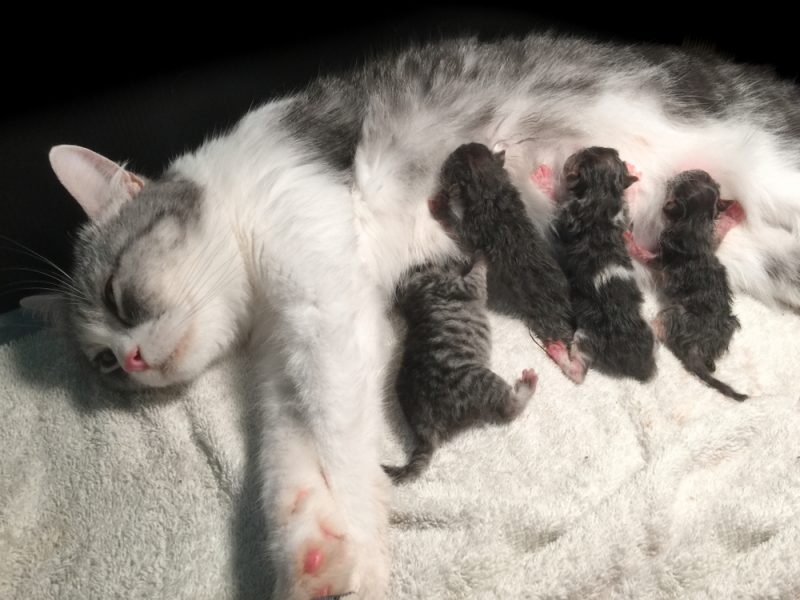In this article
Spaying and neutering your cat is highly recommended, not only for the prevention of health and behavioral problems, but also to help combat the severe overpopulation of cats. Overpopulation leads to homelessness and the risk of euthanasia.
Spays and neuters are common surgeries that are typically safe. The benefits greatly outweigh the risks. Most surgeries have some level of recovery time. Generally, your cat can be confined for around 24-48 hours depending on the vet’s recommendation. Let’s go over what you need to know about your cat’s recovery and the details about how long they should be confined after surgery.

Confinement After Surgery
Just like with humans, surgery is going to require a period of recovery. Spays and neuters are completed using anesthesia and those effects alone can last from 24 to 48 hours. Even after the effects of anesthesia wear off, your kitty is going to have an incision that needs time to heal properly.
It’s a good idea to have your home prepared before your kitty returns from the vet. This will allow you to bring them home and get them comfortable immediately, rather than having to get everything prepared right after you’ve arrived home with them.
The veterinarian will let you know when your cat is ready to come home and begin the healing process from the comfort of their own house. The amount of time your cat spends at the veterinary facility can vary by circumstance, but once you get your cat home you need to provide a clean, soft bed in a quiet location so they can rest and heal.
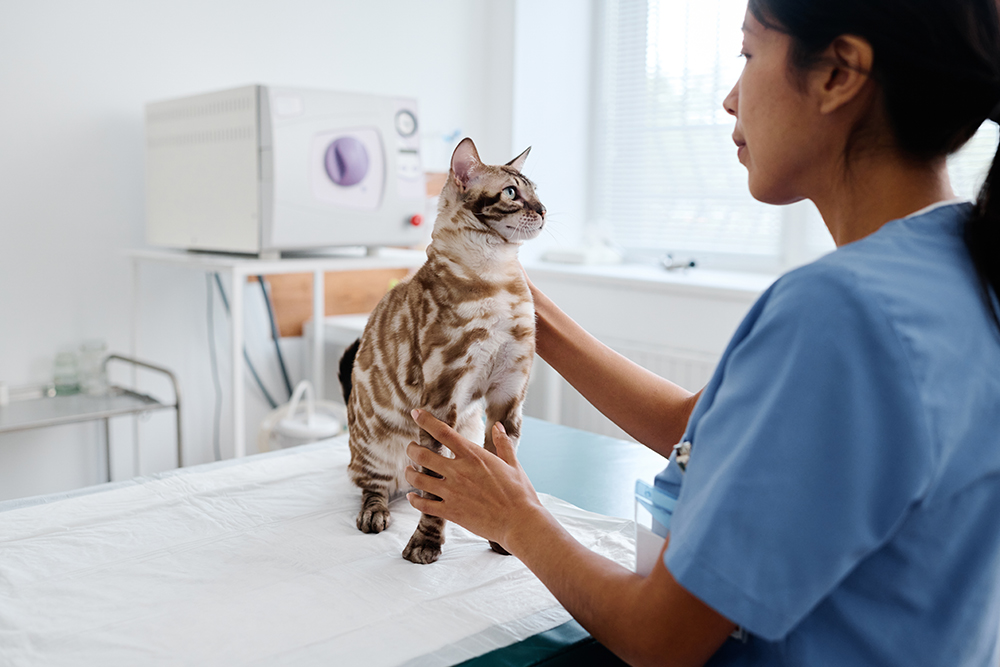
Your Cat Needs Time to Recover and Heal
The reason for confinement is to keep the surgical site clean and provide enough time for the wound to heal. Cats don’t have the same type of awareness that we do after a surgical procedure and they don’t realize what they’ve been through, so it’s up to us as owners to ensure their safety during the recovery process.
It is recommended that you keep your cat confined in a kennel for at least 24 hours after returning home. Of course, make sure they have a litter box available so they can relieve themselves as needed. The veterinarian will give you recommendations on when to provide food and water and how much to offer.
The activity needs to be restricted for approximately 7 to 10 days after surgery. This means doing your best to prevent them from running, jumping, vigorously playing, or doing any other type of strenuous activity that could put them at risk of opening the wound site. If the wound site were to open, it leaves them at risk for infection.
Get in touch with a veterinarian if you have any pre- or post-operation questions and concerns.
If you need to speak with a vet but can't get to one, head over to PangoVet. It's an online service where you can talk to a vet online and get the advice you need for your pet — all at an affordable price!

Post-Op Recommendations
The vet will provide you with all the information you need following the procedure, including behavior changes and any symptoms your cat may experience in the upcoming recovery period. They will also advise you on when you should contact them with concerns.
- Keep your cat quiet and ensure there is no running, jumping, playing, swimming, or other strenuous activity during the 7–10-day post-op recovery period.
- Keep your cat indoors so they can remain clean, dry, and warm.
- Avoid bathing your cat during their recovery period.
- Check your cat’s incision twice daily for swelling, bleeding, discharge, or wound opening and contact the veterinarian with any concerns.
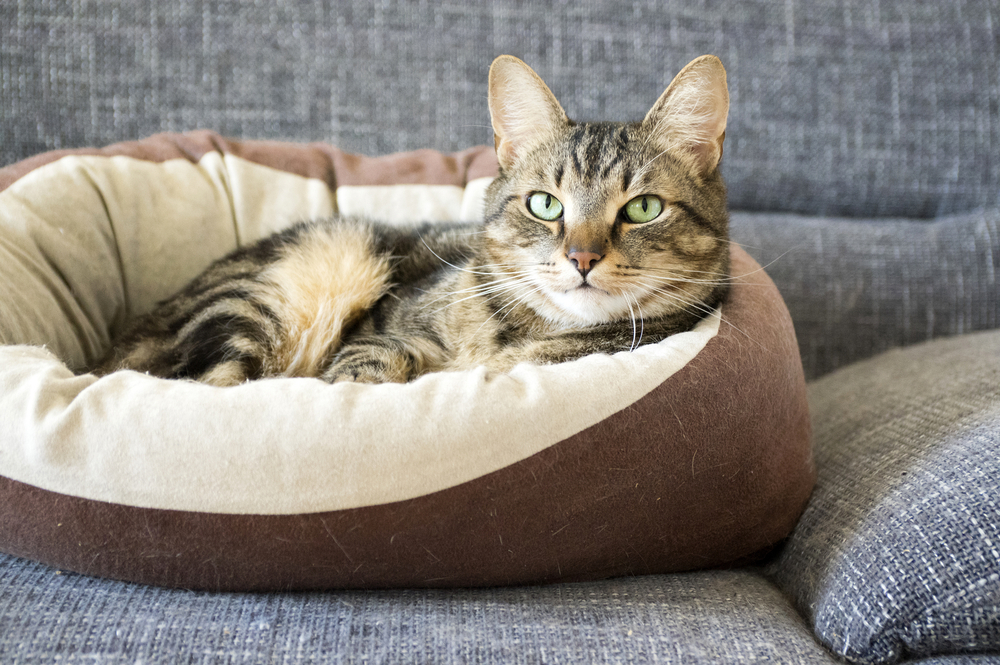
Potential Complications
Spaying and neutering are both very safe surgeries that are performed regularly by veterinarians. This doesn’t mean that complications can’t occur. While minimal redness and swelling are normal, they should resolve within several days. If it persists, you need to reach out to the veterinarian. It’s best to keep an eye out for the warning signs of infection or more severe complications.
Signs of Wound Infection
- Bad smell coming from the incision site
- Acute redness, swelling, or bruising at the incision site
- Bleeding or pus from the incision site
- Persistent lethargy
- Lack of appetite
- Reopening of the incision site
- Signs of pain such as shaking, hiding, or drooling
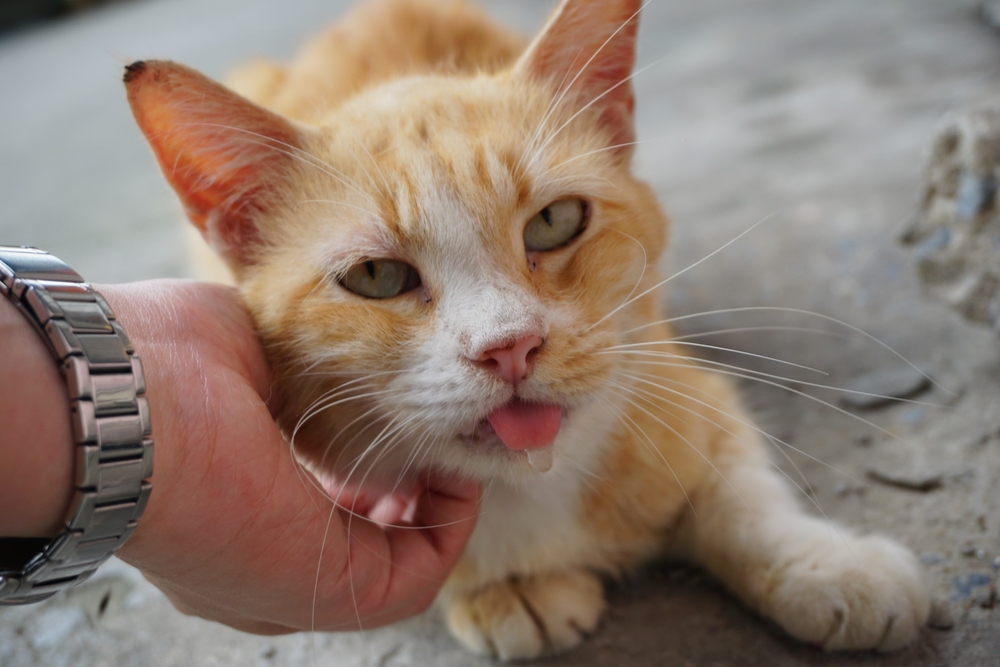
Benefits of Spaying/Neutering
In addition to helping reduce companion animal overpopulation, spaying and neutering have benefits associated with both behavior and health concerns for both males and females.
- They will not experience heat or estrus cycles
- Eliminates unwanted behaviors related to heat cycles
- Reduced risk of mammary gland tumors
- Reduced or eliminated risk of ovarian and/or uterine cancer, especially if spay is done before the first heat cycle
- Reduces or eliminates the risk of spraying and urine marking
- Less desire to roam
- Reduced risk of fighting other cats
- Eliminates the risk of testicular cancer
- Reduced risk of prostate issues
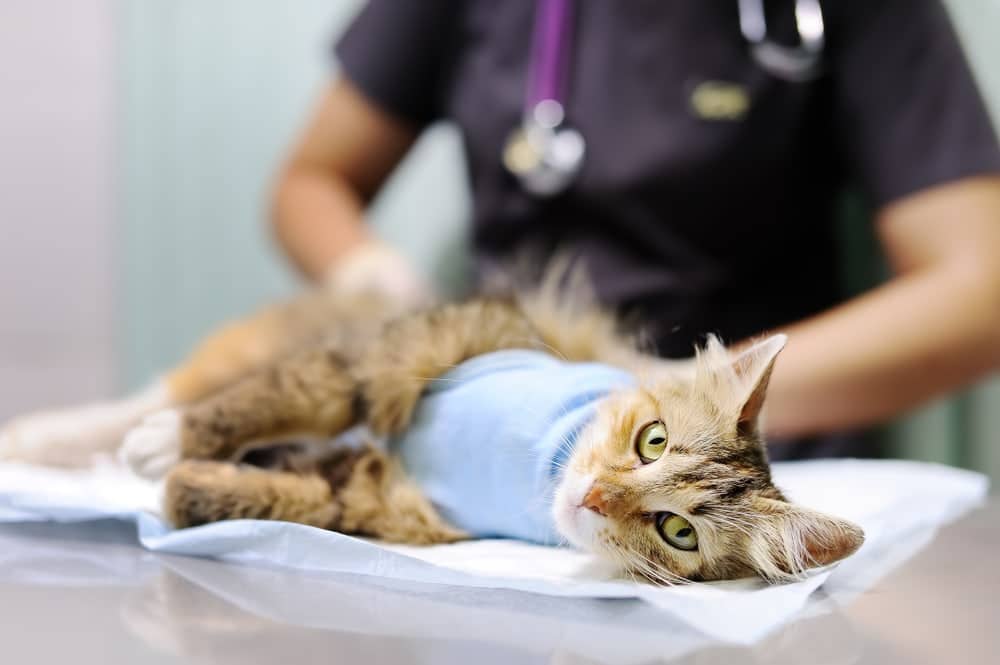

Final Thoughts
For the first 24 hours after bringing your kitty home from their spay or neuter, you will want to keep them confined to a comfortable, safe kennel per the veterinarian’s specific recommendations. After that, you will want to ensure your cat’s activity is limited for the next 7 to 10 days to ensure proper recovery and wound healing. It is best to keep an eye out for the warning signs of infection or more severe complications. Contact the veterinarian if you have any concerns after the surgery.
See also:
- When Should Cats Stop Eating & Drinking Prior to Spaying or Neutering?
- When Should Cats Stop Eating & Drinking Before Spaying or Neutering? Vet Approved Advice
Featured Image Credit: Andrii Medvednikov, Shutterstock

